|
Today's
Stories
March 3
/ 4, 2007
Alexander Cockburn
The
Persecution of Sami Al-Arian
March 2,
2007
Roger Morris
Cheney's
Bagram Ghosts
Phil Gasper
Prisoners of Ideology
Mike Roselle
Buffalo Gore: The Blood-Stained Snow of Yellowstone
Robert Bryce
The Ethanol Scam
John V. Walsh
Who is He This Time?: Kerry's Strange Call to Filibuster the
War
Sherwood Ross
Bush and Walter Reed Hospital: Praise the Care, Slash the Budget
China Hand
Who Let North Korea Get the Bomb?
David Rosen
To Cut or Not to Cut?: the Politics of Circumcision in America
Chris Genovali
Connecting the Dots
Peter Harley
The Wall, Apartheid and Mandela
Website of the Day
Courage to Resist
March 1,
2007
Laura Carlsen
Return
to Sender: Migrants as Globalization's Junk Mail
Paul Craig
Roberts
The Tragedy of a Dozen Evil Men
Ray McGovern
How Far is Iran from the Bomb? Who the Hell Knows?
Christopher
Brauchli
Bush's Theater of the Absurd
Najum Mustaq
America's Musharraf Dilemma
Brent Bowden
The War on Terror and the Terror of War
Tina Richards
Demoralizing the Troops? The Mother of an Iraq War Vet Responds
Ethan Nadelman
Mexico and the Drug War
Mike Stark
"Tough on Crime" is the Problem, Not a Solution
Wadner Pierre
/ Jeb Sprague
Haiti's Poor Under a State of Siege by UN
Mike Whitney
Market Meltdown: the Dead Hand of Greenspan
Website of
the Day
Dylan Hears a Who
February
28, 2007
Peter Linebaugh
An
Amazing Disgrace
Tao Ruspoli
A Conversation with Francisco Letelier
China Hand
The Shanghai Crash: Take the Money and Run
Marjorie Cohn
Why the Boumediene Case on Gitmo Detainees and Habeas Corpus
Was Wrongly Decided
Sarah Olson
Is Lt. Watada an Isolated Case of Military Dissent?
Susan Van Haitsma
Mark Wilkerson: Standing for a Soldier's Right to Conscience
Nicole Colson
License to Torture
Harvey Wasserman
The Sham of Nuclear Power
William S. Lind
The Non-Thinking Enemy
Nicola Nasser
US Turnabout?: Engagement and Confrontation in the Middle East
Website of the Day
Andrew Cockburn on Rumsfeld
February
27, 2007
Tariq Ali
The
Khyber Impasse: the Case for Withdrawal from Afghanistan
Tom Barry
America's
Crusaders: Santorum and Lieberman
Uri Avnery
The Next War
Antonia Juhasz / Raed Jarrar
Oil Grab: the Secret Scheme to Split Iraq
Jeff Nygaard
Howard Hunt and the National Memory System
Hugh O'Shaughnessy
Grenada: an Invasion Revisited
Mitchell Kaidy
Israel's Cluster Bombs: Made in USA, Ground-Tested in Lebanon
Carl Finamore
Airline Bankruptcies, Mergers and Profits
Anne McElroy
Dachel
The Really Big Lie About Autism
Ramzy Baroud
Who is Really in Control?
Andrew Rouse
The Queen, Her Apothecary and the War on Iraq
Website of the Day
New York City Skyline
February
26, 2007
Franklin Lamb
US
Israel Lobby Targets Lebanon's Jihad al-Bina
Bill Quigley
The
Right to Return to New Orleans
Greg Moses
Suzi Hazahza in Haskell Hell
Col. Dan Smith
Calling All Carriers
Ralph Nader
The Bush Administration is a Threat to Our National Security
Paul Buchheit
The Income Gap
Jeff Leys
How Democrats Are Buying the Iraq War
Dave Zirin
Bojangling for Bigots: an Open Letter to Jason Whitlock
Mike Whitney
Doomsday Dick and the Plague of Frogs
Michael Dickinson
Free Kareem Amer!
Website of the Day
Beware the Chickenhawks!
February
24 / 25, 2007
Jeffrey St.
Clair
Frightening
Tales of Endangered Species
R. T. Naylor
Inside Islamic Charity
Gary Leupp
AIPAC Demands "Action" on Iran
Saul Landau
Modern Day Miracle: Rev. Haggard Cured! Thank You, Jesus!
Ron Jacobs
Missile Defense Redux
Jeffrey Blankfort
A Debate on the Israel Lobby
Chris Sands
Afghanistan in Winter: Where Death Comes Cheap
Gary Freeman
The N-Word and Black History Month
Larry Portis
Zionism and the United States: the Cultural Connection
P. Sainath
Two Million People in "Maximum Distress"
Lee Sustar
What Next for the Immigrants' Rights Movement?
Kevin Wehr
Liberal vs. Radical Enviros: the Thrill isn't Gone, It's Just
Moved
Ken Couesbouc
The African Card
Soffiyah Elijah
FBI Hunting Dead Panthers: Can John Bowman Ever Rest in Peace?
Kathlyn Stone
Iraqi Labor vs. Big Oil
Dave Lindorff
Breaking the Dam in Olympia
Jason Kunin
Criticizing Israel is Not an Act of Bigotry
Kevin Zeese
Can Hillary be Trusted?
Remi Kanazi
All Roads Lead to Checkpoints
Missy Beattie
Five Words That Change Lives
Poets' Basement
Davies, Holt and Rodriguez
Website of the Weekend
Caught on Tape: an Anti-War Movement Finding Its Feet?
February
23, 2007
Franklin Spinney
Top
Gun vs. the Axis of Evil: Is This What We Have Become?
Jonathan Cook
Watching
the Checkpoints
Patrick Cockburn
The True Extent of Britain's Failure in Basra
Kathy Kelly
Do Something Good
Chris Dols
Islamophobia at Urban Outfiters: the Case for Keffiyehs
Evelyn Pringle
The Neurontin Suicides: Risks Kept Hidden for Years
Stephen Pearcy
If Bush is a War Criminal, What About the Troops?
Dan Brook
Making Poverty History
Yifat Susskind
Iraqi Police Commit Rapes
Website of
the Day
A Citizens Arrest of Patty Murray
February
22, 2007
Robert Fantina
Repeating
History
Tariq Ali
Prodi's Soap Operatic Fall: Neoliberalism and War in Italy
Michael Shank
An Interview with Noam Chomsky on Iran, Iraq, the Democrats and
Climate Change
John Ross
Calderon's War on Drugs
Christopher Brauchli
Stockcars on Dope: How NASCAR and the Tour de France are Bring
the World Together
Cindy Litman
Paying for the Damage Done to Iraq
Niranjan Ramakrishnan
Mr. Jefferson's Inheritors: Caution, Calculation and Cold Feet
Kevin Zeese
Finally, a Populist Antiwar Candidate for President
Aseem Shrivastava
The New Indian Way?: a Developer's Model of Development
Reza Fiyouzat
A Letter to the Israeli People: We are All Led by Mad Men
Illinois Students Against the
War
Why We Protested at Obama's Speech
Website of
the Day
An Interview with Mike Gravel
February
21, 2007
Maass / St.
Clair
The
Clintons: the Art of Politics Without Conscience
Sharon Smith
Inside
the Imperial Budget
Greg Moses
Showdown Over Texas Immigrant Prisons
Margaret Kimberly
America the Stupid
Ralph Nader
Making Cancer Cool: Tobacco and Hollywood
Nicola Nasser
Evasive Diplomacy: Bush Adm. Shuns Middle East Peace Talks
Mike Whitney
The Second Great Depression
Tao Ruspoli
Revolutionary But Gangsta: a Conversation with Stic.Man of Dead
Prez
Byeong Jeongpil
Beyond the "Protection Facility",
Another Prison
Corporate Crime
Reporter
Why Hillary, Obama and Edwards Oppose Single-Payer Health Care
Josh Mahan
The Lost Art of Shattuck: a Good, Old-Fashioned Drinking Story
Website of
the Day
Time to Free the Puerto Rican Nationalists
February
20, 2007
Sgt. Martin
Smith
Structured
Cruelty: Learning to be a Lean, Mean Killing Machine
Werther
How
to be a Washington Expert
Corporate Crime Reporter
Exposing SAIC
Carl G. Estabrook
Common Sense About the Recent Past
China Hand
Setting Sun: The Diverging US-Japan Relationship
Joshua Frank
Cleaning Up Exxon's Greenpoint Oil Spill
Megan Boler
The Daily Show and Political Activism
John Feffer
People Power vs. Military Power in East Asia
Daryll E. Ray
What's Inside the New Farm Bill
Alan Gregory
Midwest Wolves Fall Prey to Slob Hunters' PR Scam
Website of the Day
"Not a Target Rich Environment?"
February
19, 2007
Paul Craig
Roberts
Economists
in Denial: Blind to the Consequences of Offshoring
Gary Leupp
"A Genocidal, Suicidal Nation:" Mitt Romney Joins Iran's
Hysterical Accusers
Ron Jacobs
The Mecca Agreements: the Future Remains Bleak
Michael F.
Brown
The Peace Process Industry
Robert Jensen
Liberal Icons and War: Bi-Partisan Empire-Building
Roger Burbach
Ecuador Stands Up to US
Monica Benderman
America, Where Are You Now?
Sonja Karkar
Apocalyptic Archaeology: Israel's Provocations Threaten Jerusalem
John Walsh
Some Good News from Beantown
Talli Nauman
Colorado Delta Blues: Challenging the Law of the River
Website of the Day
"The Best Place to be in Town"
Feburary
17 / 18, 2007
Alexander Cockburn
Sold
to Mr. Gordon, Another Bridge!
Tao Ruspoli
CounterViews: a Conversation with Patrick Cockburn, Part Two
Gary Leupp
Iran: A Chronology of Disinformation
Jeffrey St.
Clair
Dark Mesas in an Ancient Light
Roger Morris
The Undertaker's Tally: the Tragedy of Donald Rumsfeld
Uri Avnery
Facing Mecca
James Brooks
Palestinians and the "Diplomatic Horizon"
Sen. Russell
Feingold
Congress Must Defund the Iraq War
Linn Washington, Jr.
"Death Row is a Web That Catches Only the Poor"
Michele Brand
Iran: the Proxy War?
Fred Gardner
Kareem Abdul-Jabbar on Music and Basketball in the Harlem Renaissance
Mitchel Cohen
Storming the Pentagon: Lessons from 1967
Mike Ferner
Democrats Keep Ohio Refugee Free: "No Iraqis in Our Backyards!"
David Swanson
Memo to Don Young: What Lincoln Really Said
P. Sainath
In the Theater of the Jungle Belt
Mike Stark
GoreAid: Gore Plans Concert with Musicians He and Tipper Betrayed
in the 80s
Missy Beattie
The Object of My Disaffection
Jonathan Franklin
Carnival: Where Dance is Hope
Website of the Weekend
The Godfather and the Tenor: "It's a Man's World"
February 16, 2007
Marc Levy
Turning
Point: Veterans' Voices Trigger Response
Andrew Cockburn
In Iraq, Anyone Can Make a Bomb
Glen Ford
Powell, Rice and Obama: Putting Black Faces on Imperial Aggression
Greg Moses
The Terror of Suzi Hazahza: Why Her Family Must Be Freed
Ron Jacobs
Marching on the Pentagon: Then and Now
John W. Farley
Hook, Line and Sinker: The Press and Stephen Hadley
James Marc Leas
Vermont Legislature Says: "Bring Them Home Now!"
Tim Rinne
The Most Dangerous Place on the Face of the Earth?: StratCom
and the Coming War on Iran
Albert Wan
Star-Cross'd Lovers?: The Strange Romance of Hillary and David
Brooks
Website of
the Day
Did Wal-Mart Murder Tweety Bird?
February 15, 2007
Patrick Cockburn
Who
is Muqtada al-Sadr?
Saul Landau
How
to Obsess Your Enemies
Stephen Lendman
The Rules of Imperial Management
Evelyn Pringle
More Zyprexa Postcards from the Edge
Michael Simmons
Is the Joke Over?: an Evening with Ralph Steadman
Kevin Zeese
A Congressional Kabuki Show
Dave Lindorff
The Co-Dependent Congress
Pete Shanks
They Want You to Eat Cloned Meat--And They Don't Want You to
Know It
Peter Rost
The Michelle Manhart Affair: the Air Force Listens!
Lenni Brenner
/ Gilad Atzmon
An Exchange
Website of the Day
Barack Obama vs. Huey P. Newton
February
14, 2007
Tao Ruspoli
CounterViews:
A Conversation with Patrick Cockburn
Dick J. Reavis
War
Without a Name
Margaret Kimberly
Medical Apartheid in America
Christopher Brauchli
The Perils of Charity: You Can be Prosecuted for Funding Terror
Even If the Designation of the Group as a Terrorist Organization
was Wrong!
Paul Craig
Roberts
Cracks in the Pentagon
John Ross
The Plot Against Mexican Corn
Michael F.
Brown
The Democrats and Palestine: New Chairman, Old Rules
Dave Lindorff
The Press Bites, Again: a Word of Caution on Those Iranian Weapons
J.L. Chestunut,
Jr.
Texas-style Injustice in Black and White
Don Fitz
Hybrids, Biofuels and Other False Idols
Michael Donnelly
Give Love, Give Life
Dr. Susan Block
The Chemistry of Love
Website of
the Day
Code Pink Drops By Hillary's Office
February
13, 2007
Uri Avnery
Three
Provocations: the Method in the Madness
Patrick Cockburn
Targeting Tehran
Ralph Nader
When Wall Street Whines (You Know They're Making a Killing)
Marjorie Cohn
Fool Us Twice? From Iraq to Iran
Col. Dan Smith
Iran Bashing Goes Prime Time
Col. Douglas
MacGreagor
Empty Vessels: Gen. Patraeus and Other Hollow Men
Thomas Power
Coal Ambivalence: Mining Montana
Nicola Nasser
The Politics of Archaeology in Jerusalem
David Swanson
Iran War Talking Points
Columbia Coalition
Against the War
Why We Are Striking
Website of the Day
Our Friends at Antiwar.com Need Your Help
February
12, 2007
Patrick Cockburn
Scapegoating
Iran
Paul Craig
Roberts
How the World Can Stop Bush: Dump the Dollar!
John Walsh
A Splintered Antiwar Movement: Nader and Libertarians Not Welcome
Dr. John Carroll,
MD
What Next for Haiti's Cite Soliel?: a Journey Through the World's
Most Miserable Slum
Greg Moses
An Outrageously Sickening Immigration Policy
Nicole Colson
The Frame-Up That Fell Apart: Jury See Through Another Botched
Federal "Terrorism" Case
Dave Lindorff
Acting in Bad Feith: Inappropriate
Behavior and Impeachment
Ray McGovern
The Kervorkian Administration: Are Bush and Cheney the Biggest
Threats to the Existence of Israel?
Doug Giebel
Rampant Cyncism
David Swanson
Twisted: Sex and Torture in America
Website of the Day
The Texas Model: Executing Women in Iraq
February
10 /11, 2007
Weekend Edition
Alexander Cockburn
Will
They Nuke Iran?
Gabriel Kolko
Israel, Iran and the Bush Administration
Patrick Cockburn
Now
It's War on the Shia
Jeffrey St.
Clair
Till the Cows Come Home: How the West was Eaten
Kevin Alexander Gray
Barack Obama: Not a Bold Bone in His Body
M. Shahid Alam
The Pacification of Islam
Greg Moses
The Words of Mohammad: an 11 Year-Old Prisoner
Paul Craig
Roberts
Brzezinski's
Damning Indictment
George Ciccariello-Maher
Coups and Democracy in Venezuela
Kevin Zeese
"You Can't Oppose the War and Fund the War:" a Conversation
with Anthony Arnove
Turner / Kim
The World's Factory: China's Filthiest Export
George Duke
Has Jazz Lost Its African-American Core?
Walter Brasch
A Dream Still Unfulfilled: America Remains Divided
Shepherd Bliss
Veterans' Love Story
Missy Beattie
Fear and Diversions: Anna Nicole, Wolf Blitzer and the Missing
Body Count in Iraq
Peter Harley
Mr. Hyde and Uncle Sam: Reading Stevenson in an Age of Shock
and Awe
Pat Wolff
Oprah's Strange Endorsement of "The Secret"
Poets' Basement
Davies, Holt, Engel and Louise
Website of the Day
The 25 Most Corrupt Members of Bush Administration
February 9, 2007
Conn Hallinan
The
Najaf Massacre: an Annotated Fable
Gary Leupp
Charging
Iran with "Genocide" Before Nuking It
Lee Sustar
An Interview with Patrick Cockburn
Nikolas Kozloff
Bombing Venezuela's Indians
Newton Garver
Politics
and Apartheid
Yitzhak Laor
Under the Steamroller
Dave Lindorff
Truth or Consequences: Some Questions for Bush
David Swanson
The Politics of Self-Congratulation: Democrats Change Gas, Claim
It's a New Car
Website of the Day
Why Corporate Social Responsibility is Not Working for Workers
February
8, 2007
John V. Walsh
Filibuster
to End the War Now!
Marjorie Cohn
Watada Beats Government
Trish Schuh
The Salvador Option in Beirut
Ron Jacobs
The Case of the San Francisco 8
Laura Carlsen
Mexico at Davos: the Split with Latin America Widens
Ramzy Baroud
Countdown for Iran
Brenda Norrell
"Leave It in the Ground": Indigenous Peoples Call for
Global Ban on Uranium Mining
Bryan Farrell
The Splinter and the Beam: Violence in the Eye of the Beholder
Judith Scherr
BP Beds Down with Cal-Berkeley
Website of
the Day
Peace TV
February
7, 2007
Daniel Wolff
"The
Road Home is a Joke": Playing Politics with the Recovery
of New Orleans
Tao Ruspoli
CounterViews:
A Conversation with Oliver Stone on Art, Politics and the Future
of Cinema in Bush's America
Tony Swindell
The
Looming Shadow of Nuremberg
Sharon Smith
Why Protest Matters
Ken Couesbouc
Delenda Est Baghdad: Why Republics End Up as Empires
Jeff Cohen
Jonah
Goldberg's Gambling Debt
Col. Dan Smith
The Self-Destructive Logic of War
Tom Kerr
McCain to Wounded Soldiers: When Words Fail Fundamentally
Joshua Frank
The Democrats and Iran
Adam Elkus
Surging Right Into Bin Laden's Hands
Stephen Fleischman
The Good News About War on Iran
Website of
the Day
Vote Vets: Battling Escalation
February
6, 2007
Diana Johnstone
Frenzy
in France Over Iranian Threat
Gregory Wilpert
Did Chavez Over-reach?: Venezuela's Enabling Law Could Enable
Opposition
Norman Solomon
A Kangaroo Court Martial: Making an Example of Ehren Watada
Dave Lindorff
Borat Goes to Washington: Don't Experiment with the Economy?
William Blum
Space Cowboys: Full Spectrum Dominance
Mike Ferner
War Opponents Occupy Congressional Offices
CP News Service
Nader's CNN Interview: "Hillary's a Panderer and a Flatterer"
Evelyn Pringle
Eli Lilly and Zyprexa: Even the Insurance Companies are Bailing
Christopher Brauchli
Corporate Advice from the Office of Detainee Affairs
Alan Cabal
How Charles Manson Kept Me Out of Vietnam
Website of the Day
Free Josh Wolf: the Longest Jailed Journalist in US History
February 5, 2007
Dave Zirin
Super
Bore: When Hawks Cry
Uri Avnery
The
Fatal Kiss: Wars and Scandals
Ron Jacobs
The
Looming War on Iran: It's Not About Democracy
Paul Craig Roberts
The Real Failed States
Newton Garver
Bush
and the Old Hands: Decider vs. Negotiator
Bruce Anderson
The Genocidal Namesake of the Hastings School of Law
Saul Landau
The Golden Globes After a Mud Bath
Ralph Nader
The Good Fight of Molly Ivins
James T. Phillips
Road Outrageous: Tailgating and Iraq
Mike Whitney
Quarantine USA: Bird Flu Panic and Profiteering
Kenneth Rexroth
Clowns and Blood-Drinking Perverts: Imperial History According
to Tacitus
Website of the Day
Richard Thompson's Anti-War Song: "'Dad's Gonna Kill Me"
February 3 /4, 2007
Alexander Cockburn
Who
Can Stop the War?
Tao Ruspoli
CounterViews: a Conversation with Dr. Susan Block on Sex, Censorship
and Liberation
Jeffrey St.
Clair
The Thrill is Gone: the Withering of the American Environmental
Movement
Patrick Cockburn
Iraqis
on the Run
P. Sainath
They Take the Early Train
Sen. Russell Feingold
A Symbol of a Timid Congress
Diane Christian
Dying Well: Why Killing Saddam Backfired on Bush
Brian Cloughley
Space Missiles Away!: the Irony of Bush's Indignation
Diana Barahona
How to Turn a Priest into a Cannibal: US Reporting on the Coup
in Haiti
Timothy J. Freeman
The Iraq War Hits Hawai'i: the Stryker Brigade and the Watada
Case
Conn Hallinan
The Vishnu Strategy
John Ross
Felipe's First Fifty Days
Greg Moses
The Government Blinks: Freedom for the Ibrahim Family
Missy Beattie
No More Rebukes or Non-Binding Resolutions
Joshua Frank
Unsafe in Any Seas: Cruising with Ralph Nader?
Evelyn Pringle
"These Drugs are Poison to Some People"
Stephen Fleischman
Let's Hear It for Chuck Hagel!
Muhammad Idrees Ahmad
Iraq in Fragments
Poets' Basement
Holt, Engel, Ford and Saavedra
Website of the Day
Flamenco Dali
February 2, 2007
Chris Kutalik
The
Meanest Industry
R. Gibson /
E. W. Ross
Cutting the Schools-to-War Pipeline
Pam Martens
America's "Money Honey" as Corporate Matchmaker: Maria
Bartiromo and the Co-Branding of CNBC and Citigroup
John Feffer
Picturing the President
Daryll E. Ray
Why the Family Farm is Good for Rural America
Ronald Bruce
St. John
Apartheid By Any Other Name
Mitchel Cohen
Listen Gore: Some Inconvenient Truths About the Politics of Environmental
Crisis
Website of
the Day
The Real Issue is Empire
February 1, 2007
Diane Farsetta
An
Army Thousands More: How PR Firms and Major Media Military Recruiters
Marjorie Cohn
Bush
Targets Iran: Cruise Missile Diplomacy
Mark Scaramella
Our
Founding War Profiteers
Ranni Amiri
Senator Prejudice: the Day Joe Biden Threatened to Kick My Ass
Christopher Ketcham
Die, TV!
Winston Warfield
Art Panic Hits Boston!
Corporate Crime Reporter
Jailing the Artists, Not the Executives: the Great Boston Art
Panic, Turner Broadcasting and the AG Who Won't Pursue Corporate
Crime
Thomas P. Healy
Adios Molly Ivins: Populist Journalism and Never Dull
Website of the Dau
The Ordeal of Gary Tyler
January
31, 2007
Patrick Cockburn
Waco
of Iraq?: US "Victory" Cult Leader was a "Massacre"
Jean Bricmont
What
is the Decisive "Clash" of Our Time?
Tao Ruspoli
CounterViews: a Conversation with Dr. Susan Block on Sex, Politics
and Liberation
James T. Phillips
Flashbacks de Jour: Photographing War
William Johnson
Worker Reistance at Smithfield Foods
Tim Wilkinson
A Hawk in Drag: Dershowitz and the Iraq War
Evelyn Pringle
The Judge, the Reporter and the Secret Zyprexa Documents
Joshua Frank
What America Really Needs to Hear
Ramzy Baroud
Shameless in Gaza
Mickey Z.
Nader Still in the Crosshairs
Website of the Day
What's Goin' On?

|
Weekend
Edition
March 3 / 4, 2007
Purim Special
From
Esther to AIPAC
By GILAD ATZMON
"In certain contexts, memory
can be subversive; in others, memory can shield the status quo.
When individuals and communities become vested with memory as
a form of identity and specialness, then other suffering threatens
to displace the centrality of our experience. Instead of a bridge
of solidarity to others who are suffering in the present, suffering
in the past can become a badge of honour, protecting us from
the challenges that are before us. Then our witness, originally
powerful, opening questions about God and power, becomes diluted,
can be seen as fake, contrived, even wilfully so. An industry
grows up around you, honours you, and at the same time uses your
witness for other reasons. In the end a confusion results, externally
and internally, until the witness himself can no longer differentiate
between the world of interpretation he helped articulate and
the world that now speaks in his name. Is this what happened
to Wiesel, or is Finkelstein's more acerbic analysis accurate?"[1]
Jewishness is a rather broad term. It
refers to a culture with many faces, varied distinctive groups,
different beliefs, opposing political camps, different classes
and diversified ethnicity. Nevertheless, the connection between
those very many people who happen to identify themselves as Jews
is rather intriguing. In the paragraphs that follow, I will
try to further the search into the notion of Jewishness. I will
make an attempt to trace the intellectual, spiritual and mythological
collective bond that makes Jewishness into a powerful identity.
Clearly, Jewishness is neither
a racial nor an ethnic category. Though Jewish identity is racially
and ethnically orientated, the Jewish people do not form a homogenous
group. There is no racial or ethnic continuum. Jewishness may
be seen by some as a continuation of Judaism. I would maintain
that this is not necessarily the case either. Though Jewishness
borrows some fundamental Judaic elements, Jewishness is not Judaism
and it is even categorically different from Judaism. Furthermore,
as we know, more than a few of those who proudly define themselves
as Jews have very little knowledge of Judaism, many of them are
atheists, non-religious and even overtly oppose Judaism or any
other religion. Many of those Jews who happen to oppose Judaism
happen to maintain their Jewish identity and to be extremely
proud about it[2]. This opposition to Judaism obviously includes
Zionism (at least the early version) but it also is the basis
of much of Jewish socialist anti-Zionism.
Though Jewishness is different
from Judaism one may still wonder just what constitutes Jewishness:
whether it is a new form of religion an ideology or if it is
just a 'state of mind'.
If Jewishness is indeed a religion,
the next questions that have to be asked are, "what kind
of religion is it? What does this religion entail? What do its
followers believe in?" If it is a religion, one may wonder
whether it is possible to divorce from it as much as it is possible
to step out of Judaism, Christianity or Islam.
If Jewishness is an ideology,
then the right questions to ask are, "what does this ideology
stand for? Does it form a discourse? Is it a monolithic discourse?
Does it portray a new world order? Is it aiming for peace or
violence? Does it carry a universal message to humanity or is
it just another manifestation of some tribal precepts?"
If Jewishness is a state of
mind, then the question to raise is whether it is rational or
irrational. Is it within the expressible or rather within the
inexpressible?
At this point I may suggest
to consider the remote possibility that Jewishness may be a strange
hybrid, it can be all of those things at once i.e., a religion,
an ideology and a state of mind.
The Holocaust
Religion
"Yeshayahu Leibowitz,
the philosopher who was an observant orthodox Jew, told me once:
"The Jewish religion died 200 years ago. Now there is nothing
that unifies the Jews around the world apart from the Holocaust."
(Uri Avnery[3])
Philosopher Yeshayahu Leibowitz,
the German born Hebrew University professor, was probably the
first to suggest that the Holocaust has become the new Jewish
religion. 'The Holocaust' is far more than historical narrative,
it indeed contains most of the essential religious elements:
it has its priests (Simon Wiesenthal, Elie Wiesel, Deborah Lipstadt,
etc.) and prophets (Shimon Peres, Benjamin Netanyahu and those
who warn about the Iranian Judeocide to come). It has its commandments
and dogmas ('never again', 'six million', etc.). It has its
rituals (memorial days, Pilgrimage to Auschwitz etc.). It establishes
an esoteric symbolic order (kapo, gas chambers, chimneys, dust,
Musselmann, etc.). It has its shrines and temples (Yad Vashem,
the Holocaust Museum and now the UN). If this is not enough,
the Holocaust religion is also maintained by a massive economic
network and global financial infrastructures (Holocaust industry
a la Norman Finkelstein). Most interestingly, the Holocaust
religion is coherent enough to define the new 'antichrists' (the
Deniers) and it is powerful enough to persecute them (Holocaust
denial laws).
Critical scholars who dispute
the notion of 'Holocaust religion' suggest that though the new
emerging religion retains many characteristics of an organised
religion, it doesn't establish an external God figure to point
at, to worship or to love. I myself cannot agree less. I insist
that the Holocaust religion embodies the essence of the liberal
democratic worldview. It is there to offer a new form of worshiping.
It made self loving into a dogmatic belief in which the observant
follower worships himself. In the new religion it is 'the Jew'
whom the Jews worship. It is all about 'me', the subject of endless
suffering who makes it into redemption.
However, more than a few Jewish
scholars in Israel and abroad happen to accept Leibowitz's observation.
Amongst them is Marc Ellis, the prominent Jewish theologian who
suggests a revealing insight into the dialectic of the new religion.
"Holocaust theology," says Ellis, "yields three
themes that exist in dialectical tension: suffering and empowerment,
innocence and redemption, specialness and normalization."[4]
Though Holocaust religion didn't
replace Judaism, it gave Jewishness a new meaning. It sets a
modern Jewish narrative allocating the Jewish subject within
a Jewish project. It allocates the Jew a central role within
his own self-centred universe. The 'sufferer' and the 'innocent'
are marching towards 'redemption' and 'empowerment'. God is
obviously out of the game, he is fired, he has failed in his
historic mission, he wasn't there to save the Jews. Within the
new religion the Jew becomes 'the Jews' new God', it is all about
the Jew who redeems himself.
The Jewish follower of the
Holocaust religion idealises the condition of his existence.
He then sets a framework of a future struggle towards recognition.
For the Zionist follower of the new religion, the implications
seem to be relatively durable. He is there to 'schlep'
the entirety of world Jewry to Zion at the expense of the indigenous
Palestinian people. For the Socialist Jew, the project is slightly
more complicated. For him redemption means setting a new world
order, namely a socialist haven. A world dominated by dogmatic
working class politics in which Jews happen to be no more than
just one minority amongst many. For the humanist observant,
Holocaust religion means that Jews must locate themselves at
the forefront of the struggle against racism, oppression and
evil in general. Though it sounds promising, it happens to be
problematic because of obvious reasons. In our current world
order it is Israel and America that happen to be amongst the
leading oppressive evils. Expecting Jews to be in the forefront
of humanist struggle sets Jews in a fight against their brethren
and their supportive single superpower. However, It is rather
clear that all three Holocaust churches assign the Jews a major
project with some global implications.
***
As we can see, the Holocaust
functions as an ideological interface. It provides its follower
with a logos. On the level of consciousness, it suggests
a purely analytical vision of the past and present, yet, it doesn't
stop just there, it also defines the struggle to come. It defines
a vision of a Jewish future. Nevertheless, as a consequence it
fills the Jewish subject's unconsciousness with the ultimate
anxiety: the destruction of the 'I'.
Needless to say, a faith that stimulates the consciousness (Ideology)
and steers the unconsciousness (Spirit) is a very good recipe
for a winning religion. This structural bond of ideology and
spirit is fundamental to the Judaic tradition. The bond between
the legal clarity of the halacah (ideology) and the mysteriousness
of Jehovah or even Kabala (spirit) makes Judaism into
a totality, a universe in itself. Bolshevism, the mass movement
rather than the political theory, is built upon the same structure,
the lucidity of pseudo-scientific materialism together with the
fear of the capitalistic appetite. Neoconservative's politics
of fear is again all about locking the subject in the chasm between
the alleged forensic lucidity of WMDs and the inexpressible fright
of 'terror to come'.
This very bond between consciousness
and unconsciousness brings to mind the Lacanian notion of the
'real'. The 'real' is that which cannot be symbolized i.e., expressed
in words. The real is the 'inexpressible', the inaccessible.
In Zizek's words, 'the real is impossible', 'the real is the
trauma'. Nevertheless, it is this trauma that shapes the symbolic
order. It is the trauma that forms our reality.
The Holocaust religion fits
nicely into the Lacanian model. Its spiritual core is rooted
deeply within the domain of the inexpressible. Its preaching
teaches us to see a threat in everything. It is the ultimate
conjunction between the ideology and the spirit that has materialised
into sheer pragmatism.
Interestingly enough, the Holocaust
religion extends far beyond the internal Jewish discourse. In
fact the new religion operates as a mission. It sets shrines
in far lands. As we can see, the emerging religion is already
becoming a new world order. It is the Holocaust that is now used
as an alibi to nuke Iran[5]. Clearly, Holocaust religion serves
the Jewish political discourse both on the right and left but
it appeals to the Goyim as well, especially those who are engaged
in merciless killing 'in the name of freedom'[6]. To a certain
extent we are all subject to this religion, some of us are worshipers,
others are just subject to its power. Interestingly enough, those
who deny the Holocaust are themselves subject to abuse by the
high priests of this religion. Holocaust religion constitutes
the Western 'Real'. We are not allowed to touch it or to look
into it. Very much like the Israelites who are entitled to obey
their God but never to question him.
***
The Scholars who are engaged
in the study of the Holocaust religion (theology, ideology and
historicity), are engaged mainly with structural formulations,
its meanings, its rhetoric and its historical interpretation.
Some happen to search for the theological dialectic (Marc Ellis),
others formulate the commandments (Adi Ofir), some learn its
historical evolution (Lenni Brenner), other expose its financial
infrastructure (Finkelstein). Interestingly enough, most scholars
who are engaged in the subject of Holocaust religion are engaged
with a list of events that happened between 1933-1945. Most of
the scholars are themselves orthodox observants. Though they
may be critical of different aspects of the exploitation of the
Holocaust, they all accept the validity of the Nazi Judeocide
and its mainstream interpretations and implications. Most of
the scholars, if not all of them, do not challenge the Zionist
narrative, namely Nazi Judeocide, yet, more than a few are critical
of the way Jewish and Zionist institutes employ the Holocaust.
Though some may dispute the numbers (Shraga Elam), and others
question the validity of memory (Ellis, Finkelstein), no one
goes as far as revisionism, not a single Holocaust religion scholar
dares engage in a dialogue with the so-called 'deniers' to discuss
their vision of the events or any other revisionist scholarship.
Far more interesting is the
fact that none of the Holocaust religion scholars have spent
any energy studying the role of the Holocaust within the long-standing
Jewish continuum. From this point onward, I will maintain that
Holocaust religion was well established a long time before the
Final Solution (1942), well before the Kristalnacht (1938), well
before the Nuremberg Laws (1936), well before the first anti-Jewish
law was announced by Nazi Germany, well before the American Jewish
Congress declared a financial war against Nazi Germany (1933)
and even well before Hitler was born (1889). The Holocaust religion
is probably as old as the Jews.
Jewish Archetypes
In a previous paper I have
defined the notion of 'Pre-Traumatic Stress Disorder' (Pre-TSD)
[7]. Within the condition of the Pre-TSD, the stress is
the outcome of a phantasmic imaginary episode set in the future,
an event that has never taken place. Unlike the Post-Traumatic
Stress Disorder, in which stress is realised as the direct reaction
to an event that (may) have taken place in the past, within the
state of Pre-TSD, the stress is formed as the outcome of an
imaginary potential event. Within the Pre-TSD an illusion pre-empts
the conditions in which the fantasy of future terror is shaping
the present reality.
As it seems, the dialectic of fear dominates the Jewish existence
as well as mindset far longer than we are ready to admit. Though
fright is exploited politically by Jewish ethnic leaders since
the early days of emancipation, the dialectic of fear is far
older than modern Jewish history. In fact it is the heritage
of the Tanach (the Hebrew Bible) that is there to set the Jew
in a pre-traumatic state. It is the Hebrew Bible that sets a
binary framework of Innocence/Suffering and Persecution/Empowerment.
More particularly, the fear of Judeocide is entangled with Jewish
spirit, culture and literature.
I would argue here that the Holocaust religion was there to transform
the ancient Israelites into Jews.
The American anthropologist Glenn Bowman who specialised in the
study of exilic identities offers a crucial insight into the
subject of fear and its contribution to the subject of Identity
politics. "Antagonism," says Bowman, "is fundamental
to process of fetishsation underlying identity, because one tends
precisely to talk about who one is or what one is at a moment
in which that being seems threatened. I begin to call myself
such and such a person, or such and such a representative of
an imagined community, at the moment something seems to threaten
to disallow the being the name I speak stands in for. Identity
terms come into usage at precisely the moment in which for some
reason one comes to feel they signifying a being or entity one
has to fight to defend." [8]
In short, Bowman stresses that it is the fear that crystallises
the notion of identity. However, once the fear is matured into
a state of a collective pre-traumatic stress then identity re-forms
itself. When it comes to the Jewish people, it is the Bible that
is there to set the Jews within a state of Pre-TSD. It is the
Bible that initiates the fear of Judeocide.
***
More and more Bible scholars
are now disputing the historicity of the Bible. Niels Lechme
in 'The Canaanites and Their Land' argues that the Bible is for
the most part "written after the Babylonian Exile and that
those writings rework (and in large part invent) previous Israelite
history so that it reflects and reiterates the experiences of
those returning from the Babylonian exile."[9]
In other words, being written by home-comers, the Bible incorporates
some hardcore exilic ideology into an historic narrative. Very
much like in the case of the early Zionist ideologist who regarded
assimilation as a death threat, "The communities which aggregated
under the leadership of the Yahwehist priesthood (at the time
of the Babylonian exile) saw assimilation and apostasy not only
as social death for themselves as Judeans but also as attempted
deicide. They resolved to maintain an absolute and exclusive
commitment to Yahweh who they were sure would lead them back
to the land from which they had been expelled. The prescribed
blood purity as a means of maintaining the borders of the national
community, thus proscribed inter-marriage with those surrounding
them. They also established a series of exclusivist rituals that
set themselves off from their neighbours, and these not only
included a surrogate form of temple worship but also a distinct
calendar which ritualistically enabled them to exist in a different
time frame than the communities with which they shared space.
All of these diacritical devices served to mark and maintain
difference, but did not prevent them from trading with and thus
being able to sustain themselves amongst the Babylonians."
Looking into Bowman and Lechme's spectacular reading of the Bible
and the Judaic narrative as a manifestation of exilic and marginal
identity may explain the fact that Jewishness flourishes in exile
but rather loses its impetus once it becomes a domestic adventure.
If Jewishness is indeed centred around an émigré
collective survival ideology, than its follower will prosper
in Exile. However, that which maintains the Jewish collective
identity is fear. Similar to the case of Holocaust religion,
Jewishness sets the fear of Judeocide at the core of the Jewish
psyche, yet, it also offers the spiritual, ideological and pragmatic
measures to deal with this fear.
Book
of Esther
The Book of Esther is a biblical story that is the basis for
the celebration of Purim, probably the most joyous Jewish festival.
The book tells the story of an attempted Judeocide but it also
tells a story in which Jews manage to change their fate. In the
book the Jews do manage to rescue themselves and even to mete
revenge.
It is set in the third year
of Ahasuerus, and the ruler is a king of Persia usually identified
with Xerxes I. It is a story of a palace, conspiracy, an attempted
Judeocide and a brave and beautiful Jewish queen (Esther) who
manages to save the Jewish people at the very last minute.
In the story, King Ahasuerus
is married to Vashti, whom he repudiates after she rejects his
offer to 'visit' him during a feast. Esther was selected from
the candidates to be Ahasuerus's new wife. As the story progresses,
Ahasuerus's prime minister Haman plots to have the king kill
all the Jews without knowing that Esther is actually Jewish.
In the story, Esther together with her cousin Mordechai saves
the day for their people. At the risk of endangering her own
safety, Esther warns Ahasuerus of Haman's murderous anti-Jewish
plot. Haman and his sons are hanged on the fifty cubit gallows
he had originally built for cousin Mordecai. As it happens, Mordecai
takes Haman's place, he becomes the prime minister. Ahasuerus's
edict decreeing the murder of the Jews cannot be rescinded, so
he issues another edict allowing the Jews to take up arms and
kill their enemies, which they do.
The moral of the story is rather
clear. If Jews want to survive, they better find infiltrates
into the corridors of power. With Esther, Mordechai and Purim
in mind, AIPAC and the notion of 'Jewish power' looks like an
embodiment of a deep Biblical and cultural ideology.
However, here is the interesting
twist. Though the story is presented as an historic tale, the
historical accuracy of the Book of Esther is largely disputed
by most modern Bible Scholars. It is largely the lack of clear
corroboration of any of the details of the story of the Book
of Esther with what is known of Persian History from classical
sources that led scholars to come to a conclusion that the story
is mostly or even totally fictional.
In other words, though the
moral is clear, the attempted genocide is fictional. Seemingly,
the Book of Esther set its followers into a collective Pre-Traumatic
Stress Disorder. It makes a fantasy of destruction into an ideology
of survival. And indeed, some read the story as an allegory of
quintessentially assimilated Jews who discover that they are
targets of anti-Semitism, but are also in a position to save
themselves and their fellow Jews.
Keeping Bowman in mind may
throw some light here. The Book of Esther is there to form the
exilic identity. It is there to implant the existential stress,
it introduces the Holocaust religion. It sets the conditions
that turn the Holocaust into reality.
Interestingly enough, the Book
of Esther (in the Hebrew version) is one of only two books of
the Bible that do not directly mention God (the other is Song
of Songs). In the Book of Esther it is the Jews who believe in
themselves, in their own power, in their uniqueness, in their
sophistication, in their ability to conspire, in their ability
to take over kingdoms, in their ability to save themselves. The
Book of Esther is all about empowerment and the Jews who believe
in their powers.
From
Purim to Birkenau
In an article named "A Purim Lesson: Lobbying Against Genocide,
Then and Now"[10], Dr. Rafael Medoff shares with his readers
what he regards as the lesson inherited to the Jews by the Book
of Esther. If to be more precise, it is the art of lobbying
which Esther and Mordechai are there to teach us. "The holiday
of Purim" says Medoff, "celebrates the successful
effort by prominent Jews in the capitol of ancient Persia to
prevent genocide against the Jewish people." But Medoff
doesn't stop just there. This specific exercise of what some
call 'Jewish power' has been carried forward and performed by
modern emancipated Jews: "What is not well known is that
a comparable lobbying effort took place in modern times -- in
Washington, D.C., at the peak of the Holocaust."
In the article Medoff explores the similarities between Esther's
lobbying in Persia and her modern brothers lobbying within the
FDR's administration at the pick of WW2. "The Esther in
1940s Washington was Henry Morgenthau Jr." says Medoff,
"a wealthy, assimilated Jew of German descent who (as his
son later put it) was anxious to be regarded as 'one hundred
percent American.' Downplaying his Jewishness, Morgenthau gradually
rose from being FDR's friend and adviser to his Treasury Secretary."
Clearly, Medoff spotted a modern Mordechai as well, "a young
Zionist emissary from Jerusalem, Peter Bergson (real name: Hillel
Kook) who led a series of protest campaigns to bring about U.S.
rescue of Jews from Hitler. The Bergson group's newspaper ads
and public rallies roused public awareness of the Holocaust --
particularly when it organized over 400 rabbis to march to the
front gate of the White House just before Yom Kippur in 1943."
Medoff's reading of the Book of Esther provides us with a glaring
insight into the internal code of Jewish collective survival
dynamics in which the assimilated (Esther) and the observant
(Mordechai) are joining forces with clear Judeo centric interests
in their minds.
According to Medoff the similarities are indeed shocking. "Mordechai's
pressure finally convinced Esther to go to the king; the pressure
of Morgenthau's aides finally convinced him to go to the president,
armed with a stinging 18-page report that they titled 'Report
to the Secretary on the Acquiescence of This Government in the
Murder of the Jews.'"
Dr. Medoff is rather ready to draw his historical conclusions.
"Esther's lobbying succeeded. Ahasuerus cancelled the genocide
decree and executed Haman and his henchmen. Morgenthau's lobbying
also succeeded. A Bergson-initiated Congressional resolution
calling for U.S. rescue action quickly passed the Senate Foreign
Relations Committee -- enabling Morgenthau to tell FDR that 'you
have either got to move very fast, or the Congress of the United
States will do it for you.' Ten months before election day, the
last thing FDR wanted was an embarrassing public scandal over
the refugee issue. Within days, Roosevelt did what the Congressional
resolution sought -- he issued an executive order creating the
War Refugee Board, a U.S. government agency to rescue refugees
from Hitler."
It is clear beyond doubt that Medoff sees the Book of Esther
as a general guideline for a healthy Jewish future. Medoff ends
his paper saying: "the claim that nothing could be done
to help Europe's Jews had been demolished by Jews who shook off
their fears and spoke up for their people -- in ancient Persia
and in modern Washington." In other words, Jews can do and
should do for themselves. This is indeed the moral of the Book
of Esther as well as the Holocaust religion.
What Jews should do for themselves is indeed an open question.
Different Jews have different ideas. The Neocon believes in dragging
America and the West into an endless war against Islam. Emmanuel
Levinas, on the contrary, believes that Jews should actually
position themselves at the forefront of the struggle against
oppression and injustice. Indeed, Jewish empowerment is just
one answer among many. Yet, it is a very powerful not to say
a dangerous one. It is especially dangerous when the American
Jewish Committee (AJC) acts as a modern-day Mordechai and publicly
engages in an extensive lobbying effort for a war against Iran.
When analysing the work and influence of AIPAC within American
politics it is the Book of Esther that we should bear in mind.
AIPAC is more than a mere political lobby. AIPAC is a modern-day
Mordechai, the AJC is modern-day Mordechai. Both AIPAC and AJC
are inherently in line with the Hebrew Biblical school of thought.
However, while the Mordechais are relatively easy to spot, the
Esthers, those who act for Israel behind the scenes, are slightly
more difficult to trace.
I believe that once we learn to look at Israeli lobbying in the
parameters that are drawn by the Book of Esther/Holocaust-religion,
we are then entitled to regard Ahmadinejad as the current Haman/Hitler
figure. The AJC is Mordechai, Bush is obviously Ahasuerus, yet
Esther can be almost anyone, from the last Necon to Cheney and
beyond.
Brenner
and Prinz
In the opening paragraph
of this essay I ask what Jewishness stands for. Though I accept
the complexity of the notion of Jewishness, I tend to additionally
accept Leibowitz's contribution to the subject: Holocaust is
the new Jewish religion. However, within the paper I took the
liberty of extending the notion of the Holocaust. Rather than
referring merely to the Shoah, i.e., the Nazi Judeocide, I argue
here that the Holocaust is actually engraved within the Jewish
discourse and spirit. The Holocaust is the essence of the collective
Jewish Pre-Traumatic stress disorder and it predates the Shoah.
To be a Jew is to see the 'other' as a threat rather than as
a brother. To be a Jew is to be on a constant alert. To be a
Jew is to internalise the message of the Book of Esther. It
is to aim towards the most influential junctions of hegemony.
To be a Jew is to collaborate with power.
The American Marxist historian Lenni Brenner is fascinated by
the collaboration between Zionists and Nazism. In his book Zionism
In The Age of Dictators he presents an extract from Rabbi
Joachim Prinz's book published in 1937 after Rabbi Prinz left
Germany for America.
"Everyone in Germany knew that only the Zionists could responsibly
represent the Jews in dealings with the Nazi government. We all
felt sure that one day the government would arrange a round table
conference with the Jews, at which after the riots and
atrocities of the revolution had passed the new status
of German Jewry could be considered. The government announced
very solemnly that there was no country in the world which tried
to solve the Jewish problem as seriously as did Germany. Solution
of the Jewish question? It was our Zionist dream! We never denied
the existence of the Jewish question! Dissimilation? It was our
own appeal! ... In a statement notable for its pride and dignity,
we called for a conference." [11]
Brenner then brings in extracts
from a Memorandum that was sent to the Nazi Party by the German
Zionist ZVfD on 21 June 1933:
"Zionism has no illusions
about the difficulty of the Jewish condition, which consists
above all in an abnormal occupational pattern and in the fault
of an intellectual and moral posture not rooted in one's own
tradition ... On the foundation of the new state, which has established
the principle of race, we wish so to fit our community into the
total structure so that for us too, in the sphere assigned to
us, fruitful activity for the Fatherland is possible. ... Our
acknowledgement of Jewish nationality provides for a clear and
sincere relationship to the German people and its national and
racial realities. Precisely because we do not wish to falsify
these fundamentals, because we, too, are against mixed marriage
and are for maintaining the purity of the Jewish group ... We
believe in the possibility of an honest relationship of loyalty
between a group-conscious Jewry and the German state ... "[12]
Brenner doesn't approve either
of Prinz's take nor the Zionist initiative. Filled with loathing
he says, "This document, a treason to the Jews of Germany,
was written in standard Zionist cliches: 'abnormal occupational
pattern', 'rootless intellectuals greatly in need of moral regeneration',
etc. In it the German Zionists offered calculated collaboration
between Zionism and Nazism, hallowed by the goal of a Jewish
state: we shall wage no battle against thee, only against those
that would resist thee."
Brenner fails to see the obvious.
Rabbi Prinz and the ZVfD were not traitors, they were actually
genuine Jews. They followed their very Jewish cultural code.
They followed the Book of Esther, they took the role of Mordechai.
They tried to find a way to collaborate with what they correctly
identified as a prominent emerging power. In 1969, Rabbi Prinz
confessed that ever "since the assassination of Walther
Rathenau in 1922, there was no doubt in our minds that the German
development would be toward an anti-Semitic totalitarian regime.
When Hitler began to arouse, and as he put it 'awaken' the German
nation to racial consciousness and racial superiority, we had
no doubt that this man would sooner or later become the leader
of the German nation."[13]
Whether Brenner or anyone else
likes it or not, Rabbi Prinz proves to be an authentic Jewish
leader. He proves to possess some highly developed survival radar
mechanism that fit perfectly well with the exilic ideology. In
1981 Lenni Brenner interviewed Rabbi Prinz. Here is what he had
to say about the collaborator Rabbi:
"(Prinz) dramatically
evolved in the 44 years since he was expelled from Germany. He
told me, off tape, that he soon realized that nothing he said
there made sense in the US. He became an American liberal. Eventually,
as head of the American Jewish Congress, he was asked to march
with Martin Luther King and he did so."
Once again, Brenner fails to
see the obvious. Prinz didn't change at all. Prinz didn't evolve
in those 44 years. He was and remained a genuine authentic Jew,
and an extremely clever one. A man who internalised the essence
of Jewish émigré philosophy: In Germany be a German,
and in America be American. Be flexible, fit in and adopt relativistic
ethical thinking. Prinz, being a devoted follower of Mordechai,
realised that whatever is good for the Jews is simply good.
I went back and listened to
the invaluable Brenner interviews with Rabbi Prinz that are now
available on line[14]. I was rather shocked to find out that
actually Prinz presents his position eloquently. It is Prinz
rather than Brenner who provides us a glimpse into Jewish ideology
and its interaction with the surrounding reality. It is Prinz
rather than Brenner who happens to understand the German volk
and their aspirations. Prinz presents his past moves as a proud
Jew. From his point of view, collaborating with Hitler was indeed
the right thing to do. He was following Mordechai, he was probably
searching for an Esther to come. Thus, it is only natural that
Rabbi Prinz later became the President of the Jewish American
Congress. He became a prominent American leader In spite of his
'collaboration with Hitler'. Simply because of the obvious reason:
from a Jewish ideological point of view, he did the right thing.
Final
Words About Zionism
Once we learn to look
at Jewishness as an exilic culture, as the embodiment of the
'ultimate other' we can then understand Jewishness as a collective
continuum grounded on a fantasy of horror. Jewishness is the
materialisation of politics of fear into a pragmatic agenda.
This is what Holocaust religion is all about and it is indeed
as old as the Jews. Rabbi Prinz could foresee the Holocaust.
Both Prinz and the ZVfD could anticipate a Judeocide. Thus, from
a Jewish ideological point of view they acted appropriately.
They were committed to their esoteric ethics within an esoteric
cultural discourse.
Zionism was indeed a great promise, it was there to convert the
Jews into Israelites. It was going to make the Jews into people
like other peoples. Zionism was there to identify and fight the
Galut (Diaspora), the exilic characteristic of the Jewish
people and their culture. But Zionism was doomed to failure.
The reason is obvious: within a culture that is metaphysically
grounded upon exilic ideology the last thing you can expect is
a successful homecoming. In order to live for its promise Zionism
had to liberate itself of the Jewish exilic ideology, Zionism
had to liberate itself of the Holocaust religion. But this is
exactly what it fails to do. Being exilic to the bone, Zionism
had to turn to antagonising the indigenous Palestinians in order
to maintain its fetish of Jewish identity.
Since Zionism failed to divorce itself from the Jewish émigré
ideology, it lost the opportunity to evolve into any form of
domestic culture. Consequently, Israeli culture and politics
is a strange amalgam of indecisiveness; a mixture of colonial
empowerment together with Galut's victim mentality. Zionism
is a secular product of exilic culture that cannot mature into
authentic homegrown perception.
Gilad Atzmon was born in Israel and served in the
Israeli military. He is the author of two novels: A
Guide to the Perplexed and the recently released My One
and Only Love. Atzmon is also one of the most accomplished
jazz saxophonists in Europe. His recent CD, Exile,
was named the year's best jazz CD by the BBC. He now lives in
London and can be reached at: atz@onetel.net.uk
Notes
[1] Marc Ellis, Marc
Ellis on Finkelstein
[2] http://www.counterpunch.org/
[3] http://www.ramallahonline.com
[4] Marc H. Ellis, Beyond Innocence & Redemption - Confronting
The Holocaust And Israeli Power, Creating a Moral Future for
the Jewish People (San Francisco: Harper & Row, 1990).
[5] http://peacepalestine.blogspot.com/
[6] http://www.amin.org/
[7] http://www.imemc.org/article/21744
[8] Glenn Bowman-Migrant Labour: Constructing Homeland in the
Exilic Imagination, Antrhropological Theory II:4. December 2002
pp 447-468.
[9] Ibid
[10] http://www.wymaninstitute.org/articles/2004-03-purim.php
[11] http://www.marxists.de/middleast/brenner/ch05.htm
[12] Ibid
[13] http://www.marxists.de/middleast/brenner/ch03.htm
[14] http://cosmos.ucc.ie/cs1064/jabowen/IPSC/php/clip.php?cid=512
|
Coming
in March from
CounterPunch Books
The Gang's
All Here: Judy Miller, Bob Woodward, Jeffrey Goldberg, Rupert
Murdoch, Bill O'Reilly...End
Times
Leaves No Reputation Unstained!

Buy End Times Now!
Now
Available from
CounterPunch Books!
Saul Landau's
Bush and Botox World
with a Foreword by Gore Vidal

Click Here to Order!
 "The Case Against Israel"
"The Case Against Israel"
Michael Neumann's Devastating Rebuttal of Alan Dershowitz
WHAT'S
INSIDE
Grand
Theft Pentagon:
Tales of Greed and Profiteering in the War on Terror
by Jeffrey St. Clair









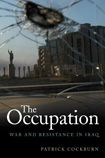
The Occupation
by Patrick Cockburn







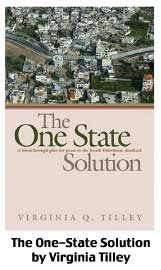


Bruce Springsteen On Tour
By Dave Marsh
 The Book on 9/11 the White House Denounced
as "ABSOLUTE GARBAGE"
The Book on 9/11 the White House Denounced
as "ABSOLUTE GARBAGE"

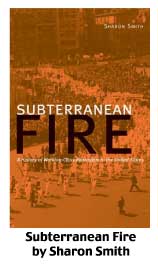





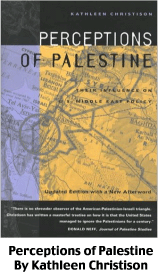

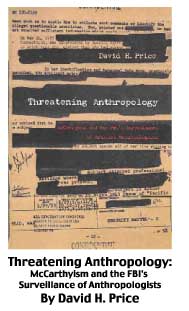






|







































